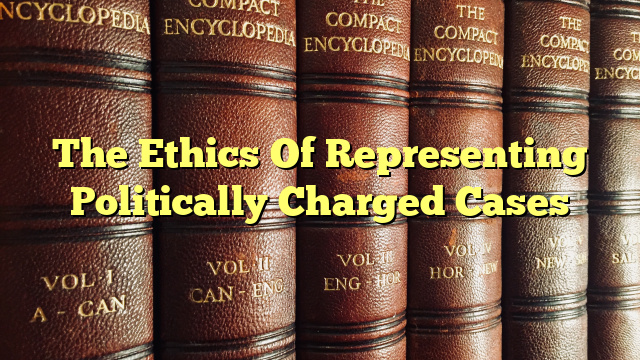Introduction
The ethical question of how attorneys should handle politically charged cases is one that has long been debated. The law is often seen as a protector of the people, but it can also be used as a tool for oppression. In such cases, attorneys must decide if they will represent their client in accordance with their ethical obligations or refuse to do so due to political concerns. This article examines the ethical obligations of attorneys in politically charged cases and the ethical issues they may face.
Ethical Obligations of a Prosecutor
A prosecutor has a duty to uphold the law and ensure justice is served. As a representative of the government, they must act in the public’s best interest. This means they must not allow their personal opinions or beliefs to interfere with the duties of their office. It also means they must be aware of any potential ethical issues that arise in court cases, such as the potential for bias or discrimination.
When faced with a politically charged case, prosecutors should remain impartial and ensure that their decisions are based on the evidence and not their own personal beliefs. They must also consider the potential consequences of their decisions, such as how it may impact the public’s view of the justice system or how it could affect the outcome of the trial.
Ethical Issues in Court Cases
In addition to the ethical obligations of a prosecutor, attorneys must also consider the ethical issues that can arise in court cases. These include matters of fairness, the use of excessive force, and the right to a fair trial.
When defending a politically charged case, attorneys must ensure that their client’s right to a fair trial is not diminished by their actions. This means they must not use tactics that could be seen as intimidating or discriminatory, such as questioning a witness in a manner intended to intimidate them. Additionally, attorneys must ensure that the evidence presented in court is fair and unbiased.
Are Lawyers Morally Accountable for Their Clients?
Attorneys are obligated to act in the best interest of their clients, but they are also morally accountable for their actions. This means they must consider the ethical implications of their decisions and how they may affect their client, the justice system, and the public.
For example, attorneys must consider how their decisions could potentially lead to a miscarriage of justice or how their representation of a politically charged case could be seen as condoning or even promoting the client’s views. Attorneys must also be aware of the potential for bias or discrimination in the courtroom and take steps to ensure that the trial is fair and impartial.
What is an Ethical Issue for an Attorney?
An ethical issue for an attorney is any decision they make that could potentially lead to an unfair trial, violate their ethical obligations, or harm their client. This includes decisions related to the representation of politically charged cases and the consideration of ethical issues in court, such as fairness and the use of excessive force. Additionally, attorneys must consider the potential consequences of their decisions, such as how their decisions may impact the public’s view of the justice system or how it could affect the outcome of the trial.

